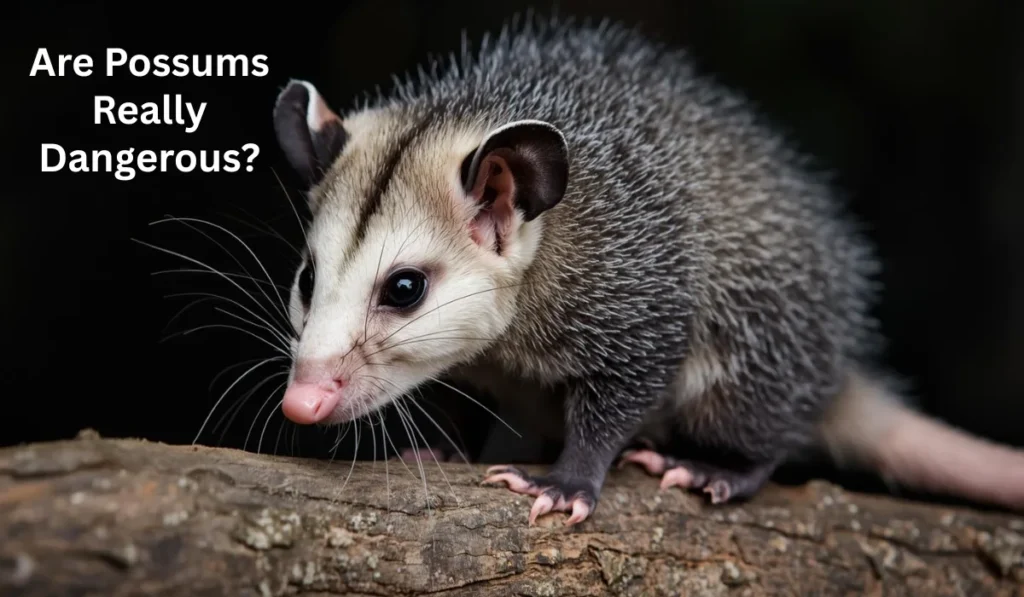
Most Aussies see possums as cute little neighbours that scurry across the powerlines at night, but the story changes when they move into your roof. Suddenly you’re dealing with loud scratching, strong smells, and damage that keeps getting worse. It’s fair to ask, are possums dangerous or just a noisy nuisance? The truth is, they can create bigger problems than you might think, from health risks linked to their droppings to serious harm to your home. In this article, we’ll unpack the risks and share what every homeowner should know about living alongside these protected creatures.
What Kind of Possums Are We Talking About?
The first thing to ask is, are possums dangerous in every situation, or only when they move into your roof? In Australia, the two most common species are the brushtail and the ringtail possum.
- Brushtail possums are larger, strong climbers with sharp claws and teeth.
- Ringtails are smaller, usually nest in groups, and are more social.
- Both are nocturnal, meaning they’re most active when you’re trying to sleep.
- They often choose roof spaces or wall cavities as nesting sites.
- Possums are protected under state wildlife laws, so relocation or handling has strict rules.
Risks Posed by Possums in Roofs
One of the biggest concerns is the dangers of possums in roof spaces where they can live for months undetected. They don’t just sleep quietly either, they cause real damage.
- Chewing electrical wiring, which can increase the risk of fire.
- Damaging insulation, leaving your home less energy-efficient.
- Breaking roof tiles or squeezing through gaps and enlarging them.
- Urinating and leaving droppings that stain ceilings and smell strongly.
- Making loud noises at night, disturbing your sleep and daily routine.
Even one possum can lead to hundreds of dollars in repair costs, while a family of them may cause thousands in damage over time.
Health Risks from Droppings, Urine, and Contact
Homeowners also need to think about the less visible issue: possum health risks that come from droppings, urine, and direct contact. While possums don’t typically attack people, their waste carries pathogens.
- Buruli ulcer: Possum faeces has been linked with the bacteria Mycobacterium ulcerans in certain regions.
- Leptospirosis: Spread through urine, this infection can affect kidneys and liver.
- Salmonella and giardia: Common in animal droppings, can cause serious stomach illness.
- Roundworms, fleas, and mites: Secondary pests carried by possums may spread into homes.
- Respiratory irritation: Ammonia from urine and dust from droppings can aggravate asthma.
For young children, elderly residents, or anyone with weakened immunity, these risks become much more serious.
Legal and Ethical Considerations
When looking into the dangers of possums in roof cavities, it’s important to remember you can’t just trap and relocate them yourself. Possums are a protected species under Australian law.
That means:
- You need a licensed wildlife handler for removal.
- It’s illegal to poison or harm them in any way.
- Councils and state wildlife services have strict rules on how far a possum can be relocated, if at all.
The goal should always be humane management: sealing entry points after professional removal, and making sure your home is possum-proofed without hurting the animal.
Early Warning Signs: How to Spot a Problem?
Many homeowners only realise there’s a problem when things get noisy. By then, the damage is often done. If you want to avoid costly repairs and possum health risks, it helps to know the clear signs of possums in your roof early on. Look out for:
- Scratching, thumping, or scuttling noises at night.
- Strong, musky odours coming from the roof or walls.
- Droppings found in roof cavities or under eaves.
- Chewed wires, torn insulation, or broken tiles.
- Actual sightings of possums entering or leaving your roof.
The earlier you pick these signs up, the easier and cheaper it is to fix the issue.
Bites, Scratches, and Aggression
You might also wonder, are possums dangerous in terms of attacking people directly. The short answer is no, possums prefer to avoid humans altogether.
However, when cornered or handled, they may defend themselves. That could mean:
- Scratches with sharp claws.
- Bites that can break skin.
- Loud hissing and growling noises to scare you off.
While rare, these encounters can lead to infections if not cleaned properly. If scratched or bitten, wash the area with soap and water, apply antiseptic, and monitor closely.
Health Risks from Possum Droppings
Perhaps the biggest concern lies in the waste they leave behind. The health risks from possum droppings go beyond bad smells and stained ceilings. Their faeces and urine can transmit disease.
- Bacteria and parasites in droppings can contaminate insulation and surfaces.
- Mould can develop in damp roof areas, spreading spores into living spaces.
- Dust contaminated with dried droppings may irritate eyes and lungs.
- In some Australian regions, Buruli ulcer outbreaks have been linked to possum faeces.
If you discover droppings, never attempt to clean them without gloves, a mask, and disinfectant. Professional clean-ups are recommended when infestations are heavy.
Prevention: How to Keep Possums Out?
The good news is, preventing these issues is often straightforward. If you want to avoid the health risks from possum droppings and roof damage, here are some practical steps:
- Seal gaps, broken tiles, or loose vents around your roof.
- Trim back trees and branches that give possums access to your roofline.
- Keep garbage bins closed tightly and don’t leave pet food outside.
- Install possum-proof mesh on vents and chimneys.
- Remove piles of garden debris or hollow logs close to your house.
A little maintenance can save you a lot of money and stress.
What to Do If You Already Have a Possum Problem?
If you suspect possums have already moved in, don’t panic. The safest approach is to:
- Contact a licensed wildlife removal service.
- Avoid using traps, poisons, or DIY relocation. They’re often illegal.
- Wear protective gear when cleaning droppings or urine.
- Disinfect and repair damaged areas quickly.
- Seal off entry points after removal so they can’t return.
Leaving the problem unaddressed will only make the damage and health risks worse.
Lesser-Known Insights
Most articles focus on physical damage and droppings, but there are other things to consider:
- Constant roof noise can cause stress and affect sleep quality.
- Poor air quality from droppings can worsen allergies and asthma.
- Possums sometimes bring fleas or ticks into living spaces.
- Home insurance may not always cover possum-related damage.
- Urban expansion is pushing more possums into suburban homes, meaning problems are becoming more common.
Conclusion
So, are possums dangerous? The answer is yes and no. They’re not out to attack you, but their presence in your roof can lead to property damage, disturbed sleep, and even serious health risks. With laws protecting them, the best path is humane prevention and professional removal. Daily Possum Removal specialises in safe, humane solutions that protect both your home and the animals. If you’ve noticed signs of possums around your property, don’t wait for the problem to get worse. Call Daily Possum Removal today on 0489908469 and let the experts handle it.

